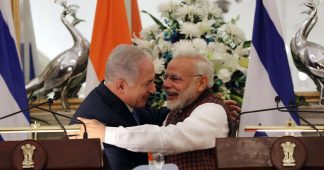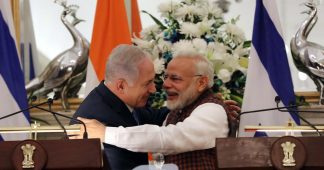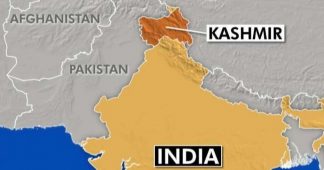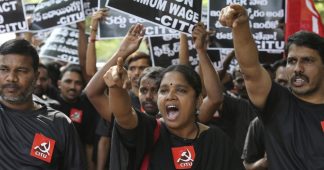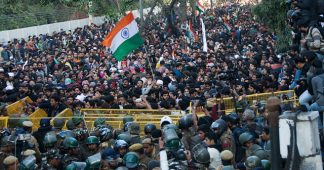by Pranab Bardhan
Jan 18, 2020 Indian Express
Contrary to expectation in many quarters five years back, the current regime has proved itself rather inept and incompetent in economic policy matters, partly because of over-centralization of power with dependence on loyal mediocrities for policy advice, and partly because for a long time, it believed in its own hype and was in denial.
Today large masses of our farmers remain in long-term agrarian and ecological distress, growing numbers of our burgeoning young population do not have anywhere near what can be called good jobs, much of the non-farm economy remains stalled by the slump in private investment and debt overhang and our exports remain non competitive in the world market. Meanwhile, corruption in the form of crony capitalism and murky election-funding (including the dubious device of electoral bonds) continues, never mind the empty rhetoric we had heard around demonetization, which in effect turned out to be largely an assault on India’s poor in the informal sector.
Yet such was the magic of propaganda that many in the electorate believed in that rhetoric at that time, just as in 2019 large parts of the electorate went along with the leaders’ call for “dedicating” their votes to the Balakot airstrike (even though the pesky foreign press kept on finding the strike to be largely a fizzle, if not a hoax).
In any case, it is a sad commentary on the inferiority complex in our national consciousness that we feel great as a nation by such an airstrike on a hapless unenviable neighboring country, which so obsesses our politicians that they fail to see that today we are behind our other neighbors like Bangladesh and Sri Lanka in many socio-economic indicators, not to speak of our towering northern neighbour, China. As the economy tanks, the incentive for our rulers to divert public attention with divisive Hindu nationalist antics gets stronger. So, Kashmir loses its state rights, Kashmiris lose their civil rights, effectively anti-Muslim citizenship laws are rammed through the legislature, and all kinds of changes to rights to information or to dissident opinion or even the definition of who is to be called a terrorist are launched. In the name of democracy, majoritarian minority-baiting Hindu nationalists are rampaging all around — these are in a way the step-children of Jinnah, who also believed in the religious basis of nationalism, something Gandhiji fought against much of his political life.
All this is regularly cheered on by a largely spineless or intimidated media. The ruling party is confident in carrying out these excesses on the basis of a supposedly democratic mandate that they think their “landslide” electoral majority (with 37 per cent of the vote) has given them. India today is the world’s largest pretend-democracy, sadly but steadily creeping from democracy to some form of thugocracy. In the last more than two centuries of world democracy, what has been regarded as the essential kernel of democracy is not so much in the winning of elections as in protecting minority rights. As early as 1787, James Madison, a founding father of the American constitution, made it clear in Federalist Papers that the central concern of democracy really lies in protecting citizens against the tyranny of the majority. Civic, as opposed to religious, nationalist founders of the American and the Indian Constitution thus emphasized various institutional checks and balances and separation of powers to protect minority rights and due process. One by one these institutions are being decimated in India (the process started earlier, but it has been substantially accelerated under the current regime). The judiciary, which is supposed to guard against this, is timid, erratic, and sometimes, compromised. The police and the bureaucracy are complicit — in fact the police often join the majoritarian lynch-mobs in their mayhem (there are stories that the “termites” from the Sangh Parivar have been quietly eating at the vitals of some these institutions from inside for some time).
In India’s largest state, police brutalities against and “encounter killings” of minorities have become routine. The investigative agencies and tax administrators are allegedly harassing, raiding, and persecuting people deemed to be in opposition to the government. The increased extortionary powers of these agencies have multiplied opportunities for official corruption. One of the insulating structures in the Constitution (more in the American than the Indian) against centralized abuse of power was that of federalism. For far too long, even the opposition states have allowed the central government to usurp powers arbitrarily, to assault the basic structure of the Constitution in many ways, violate the spirit of federalism in not involving or consulting the state governments while ramming through crucial legislations on policing, law and order and social welfare services (all of which constitutionally are state subjects), in changing the terms of reference of the constitutional body of Finance Commission, in letting Niti Aayog to be merely a central government mouthpiece and the Inter-State Council to be in hibernation, and so on.
Even when the central government actions are technically legal, one can follow Gandhi who had taught Indians to organize mass non-violent civil disobedience when the laws are not socially legitimate. It is a matter of some hope that there are now some flickering lights in this respect all over the country in the surrounding darkness.
The writer is professor of graduate school at the department of economics, University of California, Berkeley
